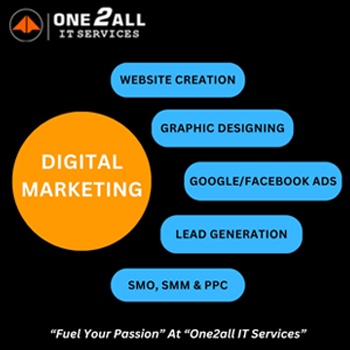Digital marketing agencies play a crucial role in helping businesses thrive in today's digital landscape. However, with so many agencies competing for clients, it is essential to have effective strategies in place to optimize performance and stay ahead of the competition. In this blog post, we will explore some proven strategies that can help your digital marketing agency achieve its full potential and deliver outstanding results for your clients.
The importance of optimizing your digital marketing agency's performance
When it comes to running a successful digital marketing agency, optimizing performance is crucial. By continually striving for improvement, you can ensure that your agency stays competitive and delivers exceptional results for your clients.
Optimizing your agency's performance helps in several key ways. Firstly, it allows you to differentiate your agency from the competition by showcasing your expertise and ability to deliver tangible results. Secondly, it enables you to attract and retain top-tier clients, who are always looking for agencies that can help them achieve their goals effectively. Lastly, optimizing performance helps you build a strong reputation in the industry, enhancing your credibility and paving the way for future growth opportunities.
Setting clear goals and targets
Setting clear goals and targets is a crucial strategy for optimizing your digital marketing agency's performance. Without a clear direction, it becomes difficult to measure success and determine whether you are on the right track.
Start by defining your agency's overall objectives and breaking them down into specific, achievable goals. These goals should be measurable, realistic, and time-bound, providing you with a clear roadmap to follow.
Once your goals are set, ensure that everyone in your agency is aligned and working towards the same objectives. Establish regular check-ins and progress updates to keep everyone accountable and on track.
Implementing data-driven strategies
In today's digital landscape, data is king. By harnessing the power of data and analytics, you can make informed decisions that will significantly impact your agency's performance.
Start by setting up a robust analytics system to track and measure key performance indicators (KPIs). This will provide you with valuable insights into your campaigns, allowing you to identify what is working and what needs improvement. Utilize tools like Google Analytics, customer relationship management (CRM) software, and social media analytics platforms to collect and analyze data effectively.
Once you have access to the data, use it to optimize your digital marketing strategies. Identify trends, patterns, and consumer behavior to gain a competitive edge. This data can help you enhance targeting, personalize messaging, and refine your overall marketing approach.
Embracing technology and automation
In today's fast-paced digital world, embracing technology and automation is no longer an option, but a necessity for digital marketing agencies looking to optimize their performance. As the industry evolves, staying up to date with the latest technological advancements can give your agency a competitive edge.
Invest in tools and software that streamline your processes and improve efficiency. From project management platforms to social media scheduling tools, there are numerous solutions available to help you automate repetitive tasks and free up time for more strategic initiatives.
Automation also allows for better personalization and targeting. With the help of customer relationship management (CRM) software and marketing automation platforms, you can segment your audience, deliver customized content, and nurture leads at every stage of the customer journey.
Continuous learning and staying updated
In the ever-evolving world of digital marketing, staying up to date with the latest trends, strategies, and technologies is crucial for optimizing your agency's performance. Continuous learning and staying updated not only keeps you ahead of the competition, but it also allows you to better serve your clients and deliver exceptional results.
Consider investing in ongoing professional development for yourself and your team. Attend industry conferences, workshops, and webinars to gain valuable insights and learn from industry experts. Encourage your team members to pursue certifications and online courses to enhance their skill set.
Collaborating with clients and industry experts
Collaborating with clients and industry experts is essential for the success of your digital marketing agency. Effective communication is the key to building strong relationships with your clients. Schedule regular meetings to discuss their goals, expectations, and any updates or changes to their marketing strategies. Listen attentively and take note of their feedback and suggestions.
In addition to client collaboration, it is also important to engage with industry experts. Building relationships with influencers, bloggers, and thought leaders can open doors to new opportunities for your agency. Collaborating with them on content creation, hosting webinars, or participating in industry events can help establish your agency as a trusted authority within your niche.
Emphasizing customer satisfaction and feedback
One of the key components of optimizing your digital marketing agency's performance is placing a strong emphasis on customer satisfaction and feedback. By prioritizing the needs and preferences of your clients, you can build long-lasting relationships and establish your agency as a go-to resource in the industry.
Ensure that your team is consistently delivering high-quality work and meeting your clients' expectations. Regularly seek feedback from your clients through surveys or face-to-face meetings, and actively listen to their suggestions and concerns. This will not only help you improve your services but also demonstrate your commitment to their success.
Conclusion
In conclusion, regular performance analysis is a fundamental part of optimizing your digital marketing agency's performance. By setting goals, utilizing key performance indicators, and analyzing data, you can identify areas for improvement and make informed decisions. This process involves identifying patterns and trends, celebrating successes, and learning from failures.


No comments yet